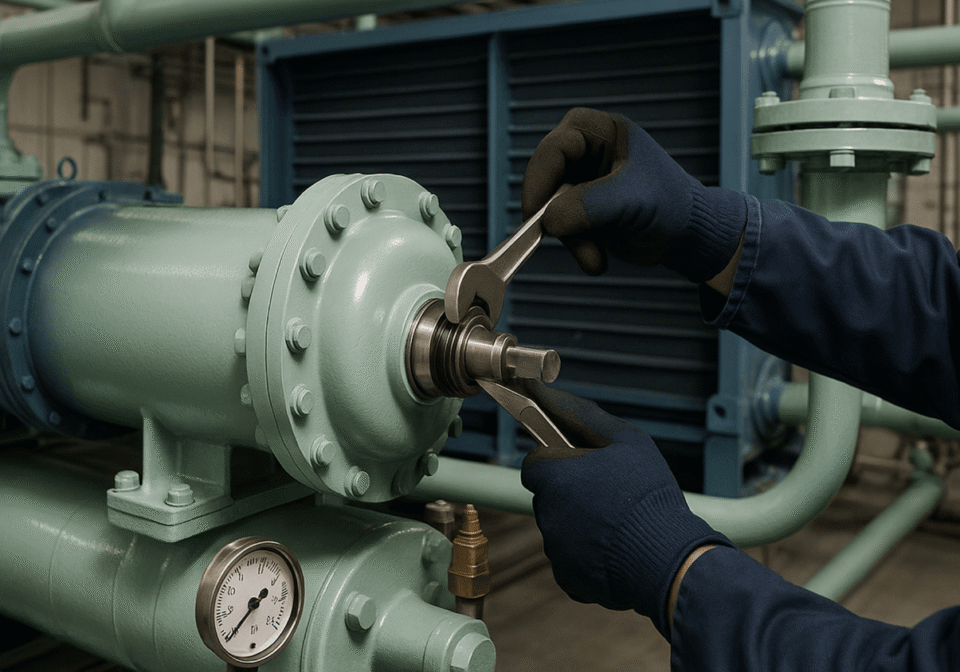The Power of the What-If Checklist
In the ammonia refrigeration industry, ensuring safety is more than a priority—it’s a necessity. A critical aspect of maintaining safety and regulatory compliance is the Process Hazard Analysis (PHA), a systematic approach to identifying and mitigating potential risks in industrial processes. For facilities handling hazardous substances like anhydrous ammonia, the What-If Checklist method stands out as a practical and effective tool for conducting PHA, providing a straightforward approach to identifying and addressing potential hazards.
What is the What-If Checklist?
The What-If Checklist is a powerful and flexible PHA method that combines brainstorming with a structured checklist to evaluate potential hazards. This approach involves asking a series of “What-If” questions to explore different scenarios that could lead to equipment failure, process deviations, or safety incidents. The checklist component ensures that all critical aspects of the process are systematically reviewed, leaving no stone unturned.
For example, questions might include:
- What if an ammonia valve fails?
- What if there is a power outage during peak operation?
- What if the temperature control system malfunctions?
By exploring these scenarios, teams can identify potential risks and develop preventive measures or contingency plans to mitigate them.
Why the What-If Checklist is Ideal for Ammonia Refrigeration
The What-If Checklist is particularly well-suited for ammonia refrigeration systems, where the complexity of operations and the potential hazards of ammonia require a thorough and methodical approach. Here’s why this method is the go-to choice for many in the industry:
Simplicity & Flexibility:
The What-If Checklist is easy to understand and apply, making it accessible to both new and experienced personnel. Its flexibility allows it to be adapted to the specific needs of any facility.
Comprehensive Hazard Identification:
This method encourages a broad exploration of potential issues, helping teams uncover hazards that might be overlooked using other techniques.
Engagement & Collaboration:
The brainstorming aspect of the What-If approach fosters teamwork and encourages input from all participants, leading to more robust and creative solutions.
Efficiency:
By combining open-ended questions with a structured checklist, the What-If method ensures a thorough analysis without the need for excessive time and resources.
HAZOP: Another Valuable Tool
While the What-If Checklist is often the preferred method for PHA in ammonia refrigeration, the Hazard and Operability Study (HAZOP) is also a widely respected alternative. HAZOP involves a detailed examination of the process to identify potential deviations from the design intent and the possible consequences of those deviations.
HAZOP is especially useful for more complex systems or when a facility needs a highly detailed analysis. However, for many ammonia refrigeration systems, the straightforward and versatile nature of the What-If Checklist makes it the more practical choice.
The Importance of Training in Effective PHA Implementation
No matter which PHA method is chosen, the effectiveness of the analysis depends heavily on the knowledge and expertise of the team conducting it. This is where specialized training becomes crucial. Proper training ensures that your personnel are:
Proficient in the What-If Checklist:
Understanding how to effectively ask “What-If” questions and apply the checklist to uncover potential hazards.
Familiar with HAZOP & Other Techniques:
While the What-If Checklist may be the primary method, it’s important to know when and how to use HAZOP or other PHA techniques if needed.
Prepared for Regulatory Compliance:
Training keeps your team up-to-date with OSHA’s Process Safety Management (PSM) standards and helps ensure ongoing compliance.
Ready to Respond to Emergencies:
Trained personnel are better equipped to handle emergencies, minimizing risks to both people and property.
Why Choose NH3 Training Center for PHA Training?
At NH3 Training Center of Texas LLC, we offer comprehensive training programs designed to empower your team with the skills needed to effectively conduct Process Hazard Analyses, with a strong emphasis on the What-If Checklist method. Our training covers:
Mastery of the What-If Checklist:
We focus on teaching the What-If Checklist method in detail, ensuring your team can confidently apply it to your ammonia refrigeration processes.
Introduction to HAZOP & Beyond:
While we emphasize the What-If Checklist, we also provide training on HAZOP and other PHA methods, giving your team the tools to choose the best approach for any situation.
Real- World Applications:
Our courses are grounded in real-world examples, helping participants apply what they learn to the specific challenges of the ammonia refrigeration industry.
Continuous Compliance & Safety:
Stay ahead of regulatory requirements with our up-to-date training materials and expert instruction.
Process Hazard Analysis is a critical component of safety management in the ammonia refrigeration industry, and the What-If Checklist method is an exceptional tool for conducting thorough and effective analyses. Ensuring your team is well-trained in this method not only enhances safety but also supports compliance with stringent PSM regulations.
At NH3 Training Center of Texas LLC, we are dedicated to providing the highest quality training to help your facility achieve these goals.
Contact us today to learn more about our PHA training programs and how we can help your team master the What-If Checklist method for enhanced safety and compliance in the ammonia refrigeration industry.


